#i feel so happy to finally finish this
Explore tagged Tumblr posts
Text
Found my fav Slay the Princess route recently. Dragon my beloved. Your horrifying beak mouth was an impossible-to-refuse lip syncing challenge 💖
Shoutouts to @blacktabbygames for making such a cool game!
#stp spoilers#slay the princess spoilers#stp dragon#stp the princess and the dragon#I FINISHED THIS LIKE 2 WEEKS AGO AND CONSISTENTLY FORGOT TO POST IT UNTIL I REMEMBERED JUST NOW LMAO FUCK#i made it for my showreel when i realised stp is full of good lines to lip sync to and ooohhhh what a fun challenge it was#and such a fun sketchy art style to emulate too. i dont think i quite nailed it but you have to take liberties when it's animation dont you#anyway this route makes me insane. getting to finally see ourself and finding out we're a SICK ASS GIANT DESTRUCTIVE CREATURE?!!!#the princess is so good at making me feel feeble and pathetic in this game. i had no idea. i am so so happy. this is gender euphoria#thank u my friend @rune-chaser for introducing me to this game bc it's so cool!!! and has made me cry more than once! yayyy!!!#stp#slay the princess#stp princess#stp the long quiet#my animations#my art#EDIT: changed the name in the desc from stp to slay the princess bc i want non stp players to know what the game is. shoulda done it sooner
32K notes
·
View notes
Text




So I have a sticker club now on my Patreon!
#myart#chloesimagination#comic#fnaf#five nights at freddy's#fnaf fanart#fnaf movie#Patreon#IM so happy to be finally finished this#I’ve been basically working on this change all year#and I’m so glad I’m finally all ready to do a sticker club#this is sorta an excuse to finally make more merch more consistently#you’ll get an exclusive sticker sheet at the end of each month!#I ship USD and internationally!#if you join at a later time you can re-order older sheets if they are still in stock#if you have any questions feel free to ask on this post or my ask box!!#Tysm for all the support fr I love yall dearly ⭐️
1K notes
·
View notes
Text

A missed apology.
#dragon age#dragon age the veilguard#DAtV#veilguard spoilers#spoilers#Emmrich volkarin#da manfred#my art#I just finished the game and am too full of feels rn#so I couldn’t draw tonight#it was just full of angst#so this is what I can muster ahdidhdj#I’m like#both happy and sad af#post series depresso is hitting so hard rn ahaha#I’ll be drawing more after I’m done marinating in my feels#drawing bigger stuff I mean#insert keyboard spam incoherently here#that fight pre final battle is still in my head so doodle#my thoughts are all over the place
542 notes
·
View notes
Text

🔞NSFW comic🔞
just seb being insatiable when it comes to clora 😇 refractory period?? whats that?? never heard of it
[ TWITTER ]
[ POIPIKU ] and a lil extra doodle:

(aka seb and clora if contraceptive potions didnt exist LMAO.... girl would just be preggo 24/7)
#its funny bc seb and clora are only gonna have 2 kids but oh boy.. this is an alternate reality of what would have been LMAO. pray for her#also speaking of them having babies i finally designed their 2 kids that im happy with ill post em soon#hogwarts legacy#sebastian sallow#sebastian sallow x mc#sebastian sallow x oc#sebastian sallow smut#hogwarts legacy sebastian#sebastian x mc#hogwarts legacy smut#wanted to finish this and post it before i went to my moms LMAOOO nothing makes u feel more like a degenerate than drawing smut at ur fams#also if ur still reading the tags and uve also been wondering about a new chapter SOON i promise ive written 13k so far#so i might just post what i have very soon or ill try to get to where i originally planned to end it/get to like 20k as usual LOL#clora clemons#choccyart
1K notes
·
View notes
Text



I’m,, so happy with these!! I feel like they look really good all together after working on them individually for about… 16 hours in total. Good lord. I’ll hopefully post more about Shadows in the future as the comic progresses but as of right now nothing about them is spoilery. Just kinda worldbuilding stuff.
#tw animal death#tw horror#? maybe idk man#tw gore#art#my art#zelda au#helmaroc king#soh helm#Koloktos#soh Kolo#dark link#? yeah sure#soh link#soh twilink#shadow over hyrule#soh au#shadow over hyrule au#legend of Zelda au#feeling kinda self conscious honestly?#maybe it’s just late but it’s also probably bc I worked harder on these than I usually do#I’ve been in a very sketchy mood and was happy that I finally finished some rendered peices#so maybe I’m just scared it’ll flop but#honestly fuck it we ball#I had fun and learned a lot#so whooooo cares#YIPPEE
232 notes
·
View notes
Text
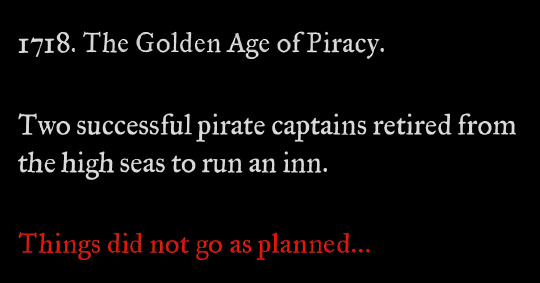
calling it right now that season 3 starts like this
#so confused about people saying the season finale feels like the end because to me it didn't at all#there's like 5-10 issues immediately set up for another season#they're in a happy place at this point because they've both realized their love is bigger than anything else#and makes it worth working on their problems together#the problems are still very much there#both of them have deep self esteem/self loathing issues that haven't been resolved in the week since ed woke up#ed doesn't know about stede's trauma#they haven't talked through anything#and they'll be shit at starting/running an inn lmao it's not gonna go well#and those are just some of the internal issues#then there's prince ricky and all the authorities that would very much like to get their hands on both blackbeard and stede bonnet#because stede just full-on kept using his government name after faking his death. nice one#the crew are not “gone” they're more like off to college for a bit but will probably run into trouble immediately#again because while they escaped to the ship they didn't eliminate the threat (the british empire)#it's not a forever goodbye#ok this got super long already anyway i have a whole fic marinading in my brain until i've finished these 4 wips i'm in the middle of ✌️#hope we get a renewal soon because i want to see the rest of their story!!#ofmd s2 spoilers#ofmd s2#ofmd#our flag means death
2K notes
·
View notes
Text
patience being tested. being forced by a bizarre unfortunate situation to adhere to university requirement technicality by taking this simple basic elementary "introduction to environmental history" class.
this class is from facilitators/program which do, like, "history of the American frontier" or "history of fishing and hunting" and still basically subscribe to that old-school twentieth-century idealization and celebration of characters like Teddy Roosevelt and reverence for a mythical arc-of-history-bent-towards-justice narrative of the often-clumsy but ultimately-benevolent US federal government and its mission to "save nature" through the miracle of "sustained yield," while heroic federal land management agencies and "heritage" institutions lead to way, staffed by exceptional individuals (appeals to nostalgia for the frontier and an imagined landscape of the American West; ego-stroking appeals to flattering self-image that center the environmentalist or academic). where they invoke, y'know, ideas like "ecology is important because don't you enjoy cross-country skiing in The Woods with your niece and nephew? don't you like hunting and fishing?" which makes it feel like a time capsule of appeals and discourses from the 1970s. and it invokes concept of "untouched wilderness" (while eliding scale of historical Indigenous environmental relationships and current ongoing colonial violence/extractivism). but just ever-so-slightly updated with a little bit of chic twenty-first-century flair like a superficial land acknowledgement or a reference to "labor histories" or "history from below," which is extra aggravating when the old ideologies/institutions are still in power but they're muddying the water and diluting the language/frameworks (it's been strange, watching words like "multispecies" and "Anthropocene" over the years slowly but surely show-up on the posters, fliers, course descriptions, by now even appearing adjacent to the agri-business and resource extraction feeder programs, like a recuperation or appropriation.) even from a humanities angle, it's still, they're talking at me like "You probably didn't know this, but environmental history is actually pretty entangled with political and social events. In fact, we can synthesize sources and glean environmental info from wacky places like workers' rolls in factories, ship's logs, and poetry from the era." and i'm nodding like YEP.
the first homework assignment is respond to this: "Define and describe 'the Anthropocene'. Do you think 'the Anthropocene' is a useful concept? Why or why not?" Respond in 300 words.
so for fun, right now in class, going to see how fast i can pull up discussion of Anthropocene-as-concept solely from my old posts on this microblogging site.
---
ok, found some
---
I think that the danger in any universal narrative or epoch or principle is exactly that it can itself become a colonizing force. [...] I’m suspicious of the Anthropocene as concept for the very reason that it subsumes so many peoples, nations, histories, geographies, political orders. For that reason, I think ideas like the Anthropocene can be a useful short-hand for a cluster of tangible things going on with the Earth at the moment, but we have to be very careful about how fluid and dynamic ideas become concretized into hegemonic principles in the hands of researchers, policymakers, and politicians. There’s so much diversity in histories and experiences and environmental realities even between relatively linked geographies here in Canada [...]. Imagine what happens when we try to do that on a global scale - and a lot of euro-western Anthropocene, climate change and resilience research risks doing that - eliding local specificities and appropriating knowledge to serve a broader euro-western narrative without attending to the inherent colonial and imperial realities of science and policy processes, or even attending to the ways that colonial capitalist expansion has created these environmental crises to begin with. While we, as a collective humanity, are struggling with the realities of the Anthropocene, it is dangerous to erase the specific histories, power-relations, political orders that created the crisis to begin with. So, I’m glad that a robust critique of the Anthropocene as a concept is emerging.
Text by: Words of Zoe Todd, as interviewed and transcribed by Caroline Picard. “The Future is Elastic (But it Depends): An Interview with Zoe Todd.” 23 August 2016.
---
---
---
The Great Acceleration is the latest in a series of human-driven planetary changes that constitute what a rising chorus of scientists, social scientists, and humanists have labeled the Anthropocene - a new Age of Humans. [...] But what the Anthropocene label masks, and what the litany of graphs documenting the Great Acceleration hide, is a history of racial oppression and violence, along with wealth inequality, that has built and sustained engines of economic growth and consumption over the last four centuries. [...] The plantation, Sidney Mintz long ago observed, was a “synthesis of field and factory,” an agro-industrial system of enterprise [...]. Plantation legacies, along with accompanying strategies of survival and resistance, dwell in the racialized geographies of the United States’ and Brazil’s prison systems. They surface in the inequitable toxic burdens experienced by impoverished communities of color in places like Cancer Alley, an industrial corridor of petrochemical plants running along the Mississippi River from New Orleans to Baton Rouge, where cotton was once king. And they appear in patterns of foreign direct investment and debt servitude that structure many land deals in the Caribbean, Brazil, and sub-Saharan Africa [...]. [C]limatologists and global change scientists from the University of London, propose instead 1610 as a date for the golden spike of the Anthropocene. The date marked a detectable global dip in carbon dioxide concentrations, precipitated, they argue, by the death of nearly 50 million indigenous human inhabitants [...]. The degradation of soils in the tobacco and cotton-growing regions in the American South, or in the sugarcane growing fields of many Caribbean islands, for example, was a consequence of an economic and social system that inflicted violence upon the land and the people enslaved to work it. Such violent histories are not so readily evident in genealogies that date the Anthropocene’s emergence to the Neolithic Revolution 12,000 years ago, the onset of Europe’s industrial revolution circa 1800, or the Trinity nuclear test of 1945. Sugarcane plantations were already prevalent throughout the Mediterranean basin during the late middle ages. But it was during the early modern era, and specifically in the Caribbean, where the intersection of emerging proto-capitalist economic models based on migratory forced labor (first indentured servitude, and later slavery), intensive land usage, globalized commerce, and colonial regimes sustained on the basis of relentless racialized violence, gave rise to the transformative models of plantations that reshaped the lives and livelihoods of human and non-human beings on a planetary scale. [...] We might, following the lead of science studies scholar Donna Haraway and anthropologist Anna Tsing, more aptly designate this era the Plantationocene. [...] It is also an invitation to see, in the words of geographer Laura Pulido, “the Anthropocene as a racial process,” one that has and will continue to produce “racially uneven vulnerability and death." [...] And how have such material transformations sustained global flows of knowledge and capital that continue to reproduce the plantation in enduring ways?
Text by: Sophie Sapp Moore, Monique Allewaert, Pablo F. Gomez, and Gregg Mitman. "Plantation Legacies." Edge Effects. 22 January 2019. Updated 15 May 2021. [Bold emphasis added by me.]
---
---
---
Geologists and other scientists will fight over [the definition of the beginning start-date of the Anthropocene] in scientific language, seeking traces of carbon dioxide that index the worst offenses of European empire which rent and violated the flesh, bodies, and governance structures of Indigenous and other sovereign peoples in the name of gold, lumber, trade, land, and power. [...] The stories we tell about the origins of the Anthropocene implicate how we understand the relations we have with our surrounds. In other words, the naming of the Anthropocene epoch and its start date have implications not just for how we understand the world, but this understanding will have material consequences, consequences that affect body and land.
Text by: Heather Davis and Zoe Todd. On the Importance of a Date, or Decolonizing the Anthropocene. ACME An International Journal for Critical Geographies. December 2017. [Bold emphasis added by me.]
---
---
---
From Aime and Suzanne Cesaire, C. L. R. James, Claudia Jones, Eduoard Glissant, through Sylvia Wynter, Christina Sharpe, and so many others, critical anticolonial and race theory has been written from the specific histories that marked the Black Atlantic. [...] Glissant also reminds us, secondly, of how cunning the absorptive powers of [...] liberal capitalism are - how quickly specific relations are remade as relations-erasing universal abstractions. [...] This absorptive, relations-erasing universalism is especially apparent in some contemporary discourses of […] liberalism and climate collapse - what some call the Anthropocene - especially those that anchor the crisis in a general Human calamity which, as Sylvia Wynter has noted, is merely the name of an overdetermined and specific [White] European man. […] [T]he condition of creating this new common European world was the destruction of a multitude of existing black and brown worlds. The tsunami of colonialism was not seen as affecting humanity, but [...] these specific people. They were specific - what happened to them may have been necessary, regrettable, intentional, accidental - but it is always them. It is only when these ancestral histories became present for some, for those who had long benefitted from the dispossession [...], that suddenly the problem is all of us, as human catastrophe.
Text by: Elizabeth Povinelli. “The Ancestral Present of Oceanic Illusions: Connected and Differentiated in Late Toxic Liberalism.” e-flux Journal Issue #112. October 2020.
---
The narrative arc [of White "liberal humanism"] [...] is often told as a kind of European coming-of-age story. […] The Anthropocene discourse follows the same coming-of-age [...] script, searching for a material origin story that would explain the newly identified trajectory of the Anthropos […]. Sylvia Wynter, W.E.B. DuBois, and Achille Mbembe all showed how that genealogy of [White subjecthood] was [...] articulated through sixteenth- through nineteenth-century [historiographies and discourses] in the context of colonialism, [...] as well as forming the material praxis of their rearrangement (through mining, ecological rearrangements and extractions, and forms of geologic displacements such as plantations, dams, fertilizers, crops, and introduction of “alien” animals). […] As Wynter (2000) commented, “The degradation of concrete humans, that was/is the price of empire, of the kind of [Eurocentric epistemology] that underlies it” (154).
Text by: Kathryn Yusoff. “The Inhumanities.” Annals of the American Association of Geographers, Volume 11, Issue 3. November 2020.
---
---
---
As Yarimar Bonilla suggests in regard to post-Irma-and-Maria Puerto Rico, “vulnerability is not simply a product of natural conditions; it is a political state and a colonial condition.” Many in the Caribbean therefore speak about the coloniality of disaster, and the unnaturalness of these “natural” disasters [...]. Others describe this temporality by shifting [...] toward an idea of the Plantationocene [...]. As Moore and her colleagues write, “Plantation worlds, both past and present, offer a powerful reminder that environmental problems cannot be decoupled from histories of colonialism, capitalism, and racism that have made some human beings more vulnerable [...].” [W]e see that contemporary uneven socioecologies associated with the rise of the industrial world ["the Anthropocene"] are based [...] also on the racialized denial and foreshortening of life for the sacrificial majority of black, brown, and Indigenous people and their relegation to the “sacrifice zones” of extractive industry. [...] [A]ny appropriate response to the contemporary climate emergency must first appreciate its foundations in the past history of the violent, coercive, transatlantic system of plantation slavery; in the present global uneven development, antiblackness, and border regimes that shape human vulnerability [...] that continues to influence who has access to resources, safety, and preferable ecologies [...] and who will be relegated to the “plantation archipelagoes” (as Sylvia Wynter called them) [...].
Text by: Mimi Sheller. “Thinking Beyond Coloniality: Toward Radical Caribbean Futures.” Small Axe (2021), 25 (2 (65)), pages 169-170. Published 1 July 2021. [Bold emphasis added by me.]
---
---
---
Indigenous genocide and removal from land and enslavement are prerequisites for power becoming operationalized in premodernity [...]; it was/is a means to operationalize extraction (therefore race should be considered as foundational rather than as periphery to the production of those structures and of global space). [...] Wynter suggests that we […] consider 1452 as the beginning of the New World, as African slaves are put to work on the first plantations on the Portuguese island of Madeira, initiating the “sugar-slave” complex - a massive replantation of ecologies and forced relocation of people […]. Wynter argues that the invention of the figure of Man in 1492 as the Portuguese [and Spanish] travel to the Americas instigates at the same time “a refiguring of humanness” in the idea of race. [...] The natal moment of the 1800 Industrial Revolution, […] [apparently] locates Anthropocene origination in […] the "new" metabolisms of technology and matter enabled by the combination of fossil fuels, new engines, and the world as market. […] The racialization of epistemologies of life and nonlife is important to note here […]. While [this industrialization in the nineteenth century] […] undoubtedly transformed the atmosphere with […] coal, the creation of another kind of weather had already established its salient forms in the mine and on the plantation. Paying attention to the prehistory of capital and its bodily labor, both within coal cultures and on plantations that literally put “sugar in the bowl” (as Nina Simone sings) […]. The new modes of material accumulation and production in the Industrial Revolution are relational to and dependent on their preproductive forms in slavery […]. In 1833, Parliament finally abolished slavery in the British Caribbean, and the taxpayer payout of £20 million in “compensation” [paid by the government to slave owners for their lost "property"] built the material, geophysical (railways, mines, factories), and imperial infrastructures of Britain and its colonial enterprises and empire. [...] A significant proportion of funds were invested in the railway system connecting London and Birmingham (home of cotton production and […] manufacturing for plantations), Cambridge and Oxford, and Wales and the Midlands (for coal). Insurance companies flourished [...]. The slave-sugar-coal nexus both substantially enriched Britain and made it possible for it to transition into a colonial industrialized power […]. The slave trade […] fashioned the economic conditions (and institutions, such as the insurance and finance industries) for industrialization.
Text by: Kathryn Yusoff. "White Utopia/Black Inferno: Life on a Geologic Spike". e-flux Journal Issue #97. February 2019. [Bold emphasis added by me.]
#sorry for being mean#instructor makes podcasts about cowboys HELP ME#and he recently won a New Business award for his startup magazine covering Democrat party politics in local area HELP#so hes constantly performing this like dance between new hip beerfest winebar coolness and oldfashioned masculinity#but hes in charge of the certificate program so i have to just shut up and keep my head down for approximately one year#his email address is almost identical to mine and invokes enviro history terms but i made mine long before when i was ten years old#so i could log in to fieldherpforum dot com to talk about enviro history of distribution range changes in local reptiles and amphibians#sir if you read my blog then i apologize ive had a long year#and i cant do anything to escape i am disabled i am constantly sick im working fulltime i have NO family i have NO resources#i took all of this schools graduate level enviro history courses and seminars years ago and ran the geography and enviro hist club#but then left in final semester because sudden hospitalization and crippled and disabled which led to homelessness#which means that as far as any profession or school is concerned im nobody im a retail employee#i was doing conference paper revisions while sleeping on concrete vomiting walking around on my cane to find outdoor wifi#and im not kidding the MONTH i got back into a house and was like ok going back to finish the semester the school had#put my whole degree program and department in moratorium from lack of funding#and so required starting some stuff from scratch and now feel like a hostage with debt or worsening health that could pounce any moment#to even get back in current program i was working sixteen hours a day to pay old library fines and had to delicately back out of workplace#where manager was straight up violently physically abusive to her vulnerable employees and threatened retaliation#like an emotional torturer the likes of which i thought existed only in cartoons#and the week i filed for student aid a massive storm had knocked out electricity for days and i was clearing fallen tree debris#and then sitting in the dark in my room between job shifts no music no phone no food with my fingers crossed and i consider it a miracle#sorry dont mean to dramatize or draw attention to myself#so actually im happy you and i are alive
134 notes
·
View notes
Text
TRC ANIMATIC :))
Idk what's happening my animatic keeps disappearing from tags, I'm trying to upload the yt version to see if it shows this time
If you come across this I hope you like it anyway :)
youtube
Guys!
I was so drowned with finals I slept less than 5 hours a night for two weeks,, but now I'm done. So I finished that animatic I started in December (what a bad idea to start this with that much work tbh), had so much fun doing it! All I could think of the last four weeks was this haha
I will finally add that the lyrics are very much linked to the scenes so make sure to listen to them
#the raven cycle#trc#trc animatic#Youtube#the gangsey#adam parrish#ronan lynch#blue sargent#noah czerny#gansey#pynch#bluesey#maggie stiefvater#i am so happy to finally post this you guys have no idea#lets be clear every song i listen to makes me want to do animatics so it is such a good feeling to start and finish one#MUSE PROPAGANDA (this is an art tag)
847 notes
·
View notes
Text

part 1 of a little comic / art sequence that i've been working on! :D it's part tribute, part experimenting with brushes n colors and trying new thingz :]
| 1 | 2 | 3 | ... |
and thus continues my endless quest of spreading the carrot fics like a plague! if you've seen my art floating around you probs already figured that this au holds a very special place in my heart, forever and always!!
if you haven't heard of it, it's a fic series by @crowned-ladybug called carrot soup!! it made me wish i could speak colors and i need more people to share my struggle xd
go check it out if you're into sweet voice lore and qpr level gayness and just wanna feel warm and soft and warm (hurt/comfort my beloved) <333 there are some heavier themes cos everyone's traumatized but they're working through it! be sure to check the tags and stay safe! <3
#hlvrai#half life vr but the ai is self aware#frenrey#carrots au#<- gotta remember to tag the other ones as well#yippie im so excited to finally start sharing these with people!!!#there will be at least 5 parts in total maybe more idk#i just wanted to illustrate this little snippet of the first fic#maybe i'll draw more of these if i get another vision#i am still trying to work on the animatic so that would probs include most of my visions anyway#i think im gonna post a wip sometime soon just in case i lose interest#also i crave validation and reading people's tags and comments makes me so so so happy!!!><#btw it kinda feels nice posting something like. after a while#cos it's been quite a bit since i finished this first.. part? page? thingy#and it's nice to finally stay out of the whole instant gratification thing#please do still go crazy in the tags tho? if u want?#mkay enough rambling for today i've got things to do#like be cozy n read fanfics n drink water n stuff yk?#all the important thingz#and who knows maybe i'll even make some progress on.. whatever it is that piques my interest today#bye for now!!! take care and have a very orange day <3#art tag or whatever
161 notes
·
View notes
Text
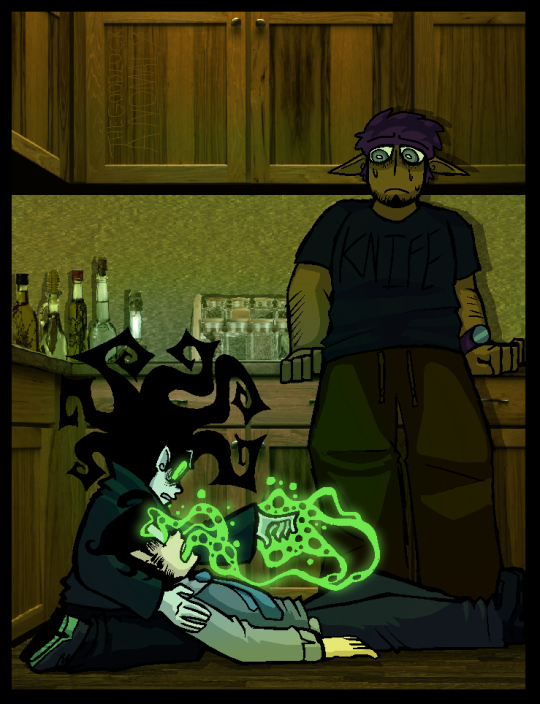
so REVENGE, HUH? or justice, if that makes you feel better. it tastes the same when cooked just right. 'I REALLY WANTED A BROTHER.' such a shame to burn a bridge you so desperately wanted to keep, especially when it wasnt even you who started the fire. especially when you hope that not a single fragment of that bridge ever washes ashore.[MAY IT ROT FAR FROM MY SIGHTS] an unfortunate loss! atleast he has his friends.
#jrwi fanart#jrwi show#jrwi prime defenders#jrwi prime defenders spoilers#jrwi pd spoilers#jrwi pd#william wisp#vyncent sol#THIS ONE IS FUUUUCKIN OOOOOLLDD RAAAHHHHH i made it like. a year ago. but didnt finish it for so so long bc i just wasnt happy w it.#BUT LIKE A CENTURY EGG the decades of being encased in salt n lime n ash have done WELL to bring out the flavores of this piece#i sorta recently cleaned it up and posted it onto twitty. didnt tag it bc it was SO OLD AND SCUFFED(i see so many MISTAKES NOW)#that i didnt want to expose it to the open air just like that#if i show smth to my small circles then it shall only be understood in those small circles.#open air and open interpretation from minds i cannot predict are NOT something i enjoy the thought of. usually. i am brave tho#BUT EVERYONE ON TWITTY WAS SO NICEEE i was like damn... i guess it IS good enough to be enjoyed by the masses...#lets work on being nicer to our art together. THAT BEING SAID. i really love my colors here HELL YEAHHHH#FIRST TIME IN A WHILE COLORIN THESE BOYS.... i dont use proper color enough..I ALSO RLY LIKE MY BACKGROUNDS HERE#i LOVE when the bg is hyperrealistic (i frankestiened stock photos) and when the subjects are all flat colored n cartoony#recently rewatched Making Fiends and they do that similar thing!! soft shading! lotsa details! almost painted? ill paint one day#ive already rambled so much abt the art im runnin out of ROOm to ramble about WWWIILLIAM GODDAMN WWIIIISP. its been a minute since i saw-#-this episode..but i DO remember the funny smoke trick that will did to his funny brother. EVERYTIME U GIVE AN ORDER. THAT BRINGS HARM-#-INDIRECTLY OR NOT. YOU WILL HEAR THOSE SCREAMS. YOU WILL FEEL THAT PAIN. OHHH WHAT A COOL PUNISHMENT THAT IS#its still an olive branch in a sense! a final chance for big bro bell to show that hes NOT an irrideemable piece o shit. and if not#well. to the wolves of psychosis with him!!! i really think william did the best he could here. if i was in his shoes i have no doubt i-#-woulda done the same. IM ALSO GLAD THAT VYN DECIDED TO STICK AROUND N SUPPORT HIM! thas character development baybe!!#i loooove prime defenders.. its been so long since i watched any eps of it but i KNOW it still has such a grip on my heart..GOTTA rewatch i
333 notes
·
View notes
Text









I’m getting so antsy about finishing this—Oh how I long for the day I’ll be able to share the full thing in motion. Alas that day never comes because I keep making it increasingly more complicated for myself to get done lol. Maybe give it another month
#GRAGARAGRAGAR clawing at my walls screaming shouting begging for some divine spirit to make me work faster#I work on this thing minimum three hours every single day#every. single. day. this TV is the first thing I see in the morning and the last thing I see before bed#do you even realize how far I’ll go for him? how many days I labor away just so I can appease him?#like I swear if Puzzles rejects me after this I’m done for /j#I DO ALL THIS FOR HIM AND WHAT DOES HE DO FOR ME!??#he gives me the happy and the creative drive yipeee could never hate him :3#our dynamic is complex you couldn’t understand it /j#he’s driving me to the brink of insanity this is my love letter to Puzzles#see not even my tags make sense anymore it’s like i’m writing a scrambled riddle I don’t even know lol#anyways I’m so damn proud of all the scenes I’ve finished. I desperately wish I could share them#how immensely fulfilled I feel by working on this#I see something come to life and I feel energized. I feel like doing more. What’s better is there’s no pressure on when to finish :)#I really feel like I’m putting myself first after a long while of worrying over others. Finally this is made for me#(oh yea and the rest of Puzzle fans lol)#I love every ounce of this project and I hope you will too#hplonesome art#update#animation screenshots#WIP puzzle animation#mr. puzzles smg4 animation update
45 notes
·
View notes
Text

fishy love 🐟🩵🦈based off of BbK224's fic A Union of Sea and Sky
#signalis#signalis falke#signalis adler#adlr#fklr#its very cute go give it a read!!!!!!!!!!!!!!!#i downloaded new brushes for these hehe#i dont draw water scenes often so this was fun ^_^ albiet a bit difficult since i didnt exactly know what i wanted to do#either way i had fun :) this is the first thing ive really drawn (as in made into like an ultra mega finished piece) in a long time so im r#ally happy about it hehe <3#ive been drawing lots and lots of falkler kisses as drawing stretches for the past week or so so this drawing feels sorta like all of it ha#come to ahead#the falkler kiss doodle final boss if you will#<- i will post all of my kiss doodles soon ive just decided to give them their own post because most of them are so rough#so they will be up sometime in the future 👍💥#myth.art
73 notes
·
View notes
Text
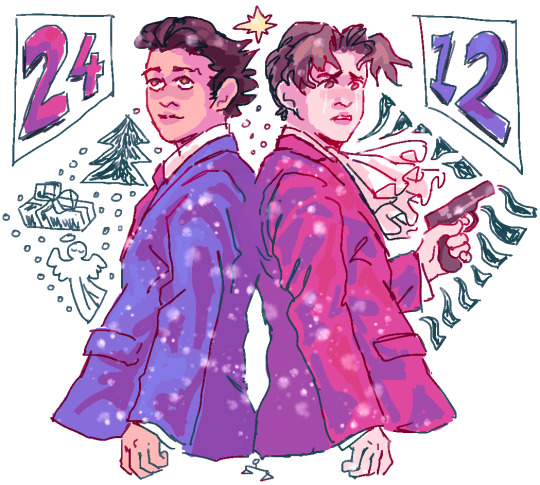
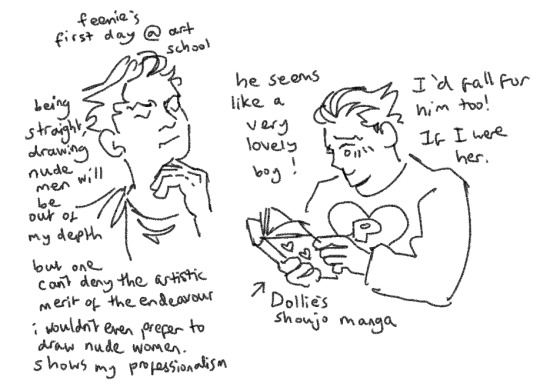
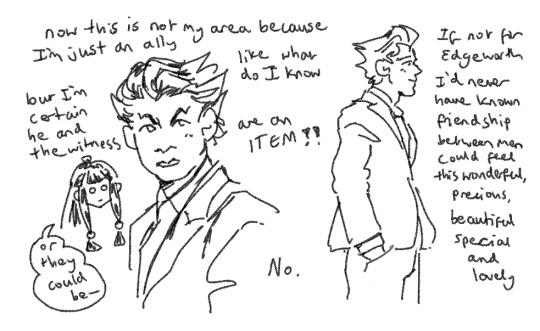

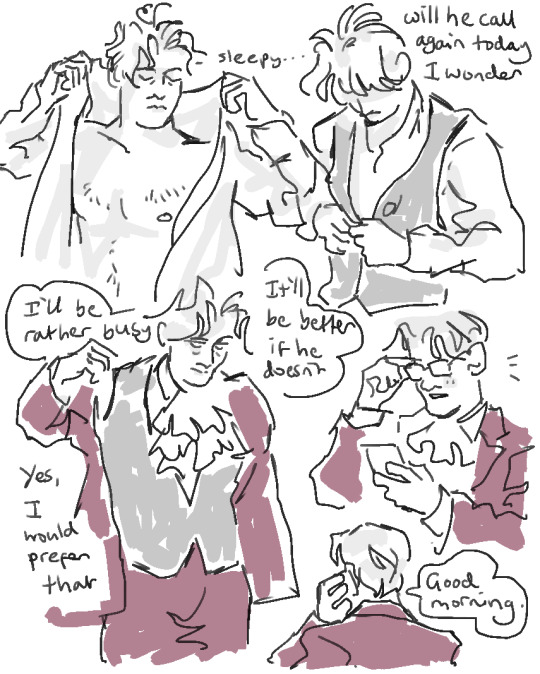
hehe. almost christmas!
#ace attorney tag#narumitsu#partial nudity /#2nd and 3rd things inspired by playing the first game and Uhh... why is phoenix accusing men of being lovers and being certain of it#and just generally containing the core of bisexuality within him#also there's that part i recall in maybe the..3rd game? where he's like Wow.. I'd Fall For Him Too... about that cinnamon swirl looking man#learnt lately that the writers upon learning that ace attorney was very popular with BL people immediately started reading BL#to understand the genre. i think phoenix would also do such Research in college. to Learn About People. About The World.#so now he feels that he has gaydar and is a good Ally etc. But actually maybe...you're also just bi too !#too bad you'll have to get kissed by a criminal to work that out! Hang in there <3#i reread my fic today !! I'm in the christmas mood now ! Sort of ! ooooh the 7 year gap.. at least we are in the 7 year gap years irl#Somewhere out there they ARE drinking wine romantically gazing at snow on a balcony in germany. thank GOD for that fr#so i shall be drawing things from THAT era next i need to depict men finally kissing NOW !!!!!!#can't do it with orufrey..can't draw cute happy romantic wintry art of them..didn't finish processing my current divorcecore arc era cycle
344 notes
·
View notes
Text
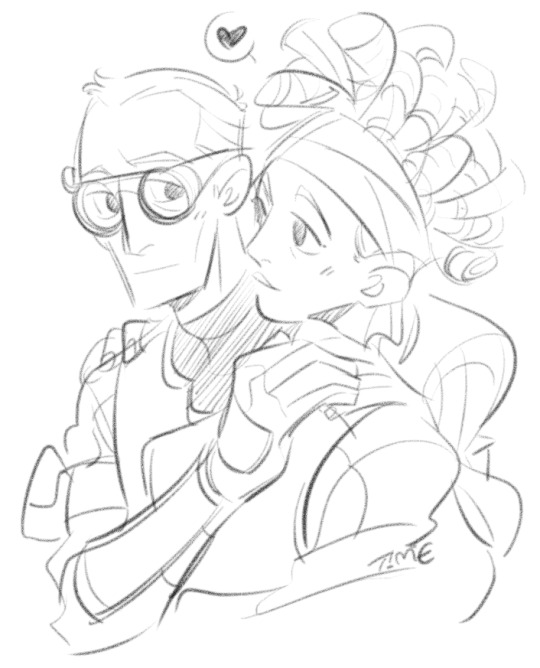
Last episode is tmr but I’m still thinking of them. 😭
#the bad batch#TBB tech#TBB phee#techphee#my art#it’s been an awesome season but it feels so different without tech#I’m curious how they’ll finish the story cos it feels like so much left to put into one ep#being delulu and wondering if they’ll announce a sudden movie finale as episode 16#Ahahaa#I miss them sm I want them all happy#oughhh
363 notes
·
View notes
Text

i tried rendering and turns out i fucking hate it !
#mush art#WOOGOOOOOO I FINISHED IT FINALLY#took me just.. about two weeks thats insane#im never making anything like this again it was HELL#it was fun in the bwginning#and i like it#so its okay i dont mind#but it drove me fucking crazy nuts up the wallas#i hope u like it becaus e im actually very happy with it#im not feeling very happy about it rn because im so sick of looking at it but i am very happy with it#Btw dont zoom in too close its not very pretty💀#ignore the bench i was Done💀#and i croppednit badly on purpose okay#voltron#vld#voltron legendary defender#fanart#voltron fanart#princess allura#allura#romelle#romellura#lesbians#GAYS#THEYRE GAY#romelle vld#allura vld#romelle x allura#allura x romelle#love wins
62 notes
·
View notes
Text

28/01/2024
stars don't twinkle moon doesn't shine
big thanks to @nahrgles for finishing this for me after i hit a wall with colors bg and effects- chromatic aberration blew my fkn mind
pre edit transparent version under cut because i spent too much time cleaning it loll
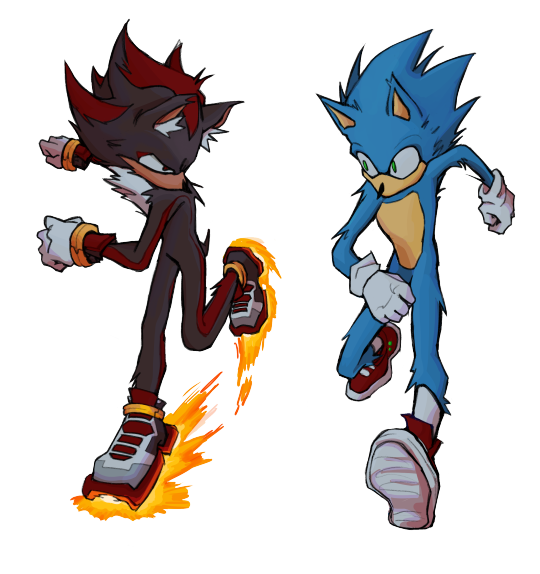
#sonic the hedgehog#sth#sonic#shadow the hedgehog#shadow#sonic adventure 2#sa2#admin draws#fanart#not intended as ship theyre kinda just There but like if ya wanna tag it i aint stopping you#never played sa2 myself but ive been insane about these two for saur long now and thats like half the reason i even finished this#finished sonic generations though and i replayed this fight like three times omgfgghgh its so fun. i love them so much#those who follow my main blog mightve seen the piece by a long deactivated artist that inspired this#queue spat it out just around the time i finished this#sitting down to complete a piece that i dont finish in one sitting is rare let alone 2 (it took 3) and im pretty happy with it#still not ttoooottally happy but you just gotta let mistakes be and not ruin ur perception of a thing thats on the whole. pretty good#ive still got a bg3 wip in the works but i might have to doodle these 2 for sanity rather than sitting down after a long day#of studying infectious diseases for a final. and then making myself work on something ive wrung of most of its initial creative dopamine#MORNING EDIT WOW. THAT TRAILER HUH. 20 YEARS OF SHADOW RETROSPECTIVE HOW WE FEELING.#BC I KNOW IM ON CLOUD NINE NOW
118 notes
·
View notes